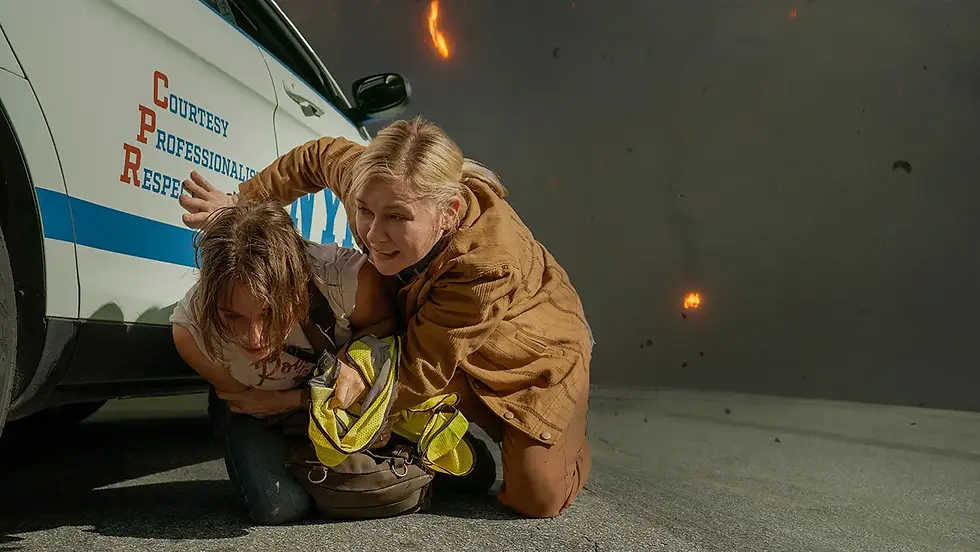Civil War // Film Review
- James McCleary
- Apr 13, 2024
- 2 min read
It is a touch ironic how divisive a film called Civil War has proven to be. Many of the dissenters are in uproar about the film’s geopolitical aversions; the plot never really cares to tell you what either side in this war is meant to stand for, nor in most cases on which side its various characters tend to fall. The film is by-and-large attempting to create an abstract of war, commentating on nothing except the journalists burdened to cover it.

I’m not totally convinced this approach works, given the unavoidable parallels to our current, election year United States (the sequence with Jesse Plemons - a standout - is particularly difficult to remove from certain political leanings). What does work is the central story of four journalists - one old, one young, one cynical, one cheery - venturing across the ruins of the American East towards Washington DC in the days ahead of a brutal siege on the White House.
Cailee Spaeny, fresh off her Volpi Cup prize for Priscilla, is a particular standout here as junior photographer Jessie. It is through her initial curiosity of war, turned first to terror and then to something arguably worse, that we experience this journey, culminating in a sequence so full of blood and dread that it could stand alongside any horror worth its salt in recent years. Jessie's loss of innocence is not a radical storytelling device, but it is well-drawn across the film's episodic set-pieces. As we become more accustomed to sudden bursts of violence, so does she, culminating in a sequence that could belong to any macho combat movie, offset by Spaeny's chilling lack of thought or fear for her own life.

The stop-and-start nature of the film's action is both a blessing and a curse, however; while the constant shocks and gasps do effectively create an environment wherein nothing ever feels secure, there are often lulls which are instead filled with dialogue most generously described as flimsy. Characters speak in theses, their traits more literary than lived-in, which is an unusual turn given that writer/director Alex Garland famously prefers the former to the latter, going so far as to say that the latter is "not a real job".
Country to his own beliefs, Civil War is loaded full of set-pieces boasting incredible execution, as Garland and his sound team truly play to the sensory overload of a war zone, really selling the need for its heroes to become desensitised. Bullets burst like dust, men yank Spaeny around like giants and the sound design is comparable only to the worst, most relentless drumbeat you’ve ever heard. Regardless of its flawed apolitical aspirations, the core of Civil War is a truly astonishing spectacle which Garland has gone to great lengths to ensure you can't ever fully enjoy.
















Comments